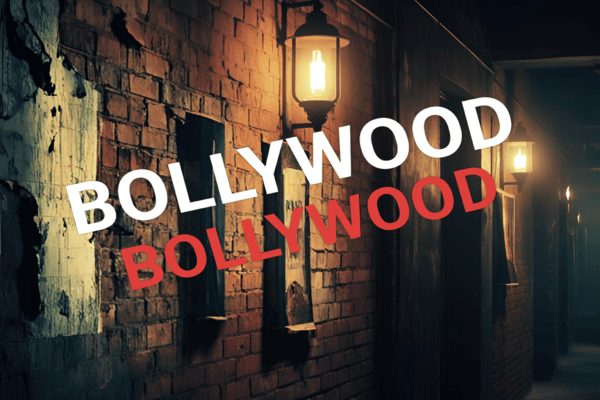Bollywood’s shadowed history of nepotism, exploitation, and favoritism resurfaces as debates on accountability and inclusivity reignite. Recent controversies highlight industry dynamics reminiscent of its turbulent past, raising questions about transparency and equitable opportunities. As audiences demand change, will Bollywood embrace reform or repeat its mistakes?
Bollywood’s Troubled 2024: A New Era of Decline?
In 2024, Bollywood faced a sharp decline in box office collections, with revenues plunging by 30%-40%. This economic downturn has raised alarm bells, conjuring memories of the crime-infested 1990s when Mumbai’s streets mirrored the turmoil within its film industry. As Bollywood struggles to regain its footing, fears of an escalating crime wave loom large over India’s financial capital.
A Grim Reminder: The Murder of Baba Siddique
The brutal murder of politician and real estate magnate Baba Siddique in October 2024 has only heightened these concerns. Siddique, known for his close ties to Bollywood celebrities, was gunned down outside his car. A gang claiming responsibility alleged the killing stemmed from a nexus of “Bollywood, politics, and property dealings.”
The assassination underscores the lingering influence of organized crime in Bollywood, a phenomenon that has shaped the industry’s history for decades.
Bollywood and the Underworld: An Interwoven Legacy
Bollywood’s connection with organized crime dates back to the mid-20th century. During the Golden Age of Indian Cinema (1947-1967), the industry thrived on idealism and social narratives. However, the late 1960s marked a shift toward escapism, coinciding with a rise in criminal influence.
The 1970s: Enter the Underworld
By the 1970s, Bollywood was releasing hundreds of Hindi-language films annually, but financing options were limited. This financial gap was bridged by figures like Haji Mastan, a notorious don who used his smuggling profits to bankroll films, often starring his actress lover. Mastan’s investments marked the beginning of the underworld’s deep infiltration into Bollywood.
The 1980s and 1990s: Crime Evolves
As India’s economy opened up in the 1980s and 1990s, the mob diversified its operations. Smuggling gave way to money laundering, drug trafficking, and film financing. Dons like Dawood Ibrahim, operating from Dubai, became major players. By the 1990s, the mob wasn’t content with profits alone; they demanded active participation in production and overseas distribution rights.
Tragedy struck in 1997 with the murder of Gulshan Kumar, founder of T-Series, allegedly orchestrated by Ibrahim’s D Company. This, coupled with Ibrahim’s involvement in the 1993 Mumbai bombings, forced authorities to crack down on the underworld’s Bollywood nexus.
2024: Signs of a Resurgence
Despite efforts to corporatize Bollywood and eliminate criminal influence, recent events suggest a disturbing revival. In February 2021, a car packed with explosives was found near the residence of Mukesh Ambani, India’s richest man. The alleged involvement of a former encounter specialist turned detective added a chilling layer to the incident.
The murder of Siddique has further deepened these fears. Police have invoked stringent anti-organized crime laws, but the extent of underworld activity remains unclear. Chhota Shakeel, a close aide of Dawood Ibrahim, once bragged about producing films and collaborating with Bollywood figures, highlighting how crime profits can infiltrate the entertainment industry.
The Broader Implications
The repercussions of Bollywood’s crime nexus extend beyond entertainment. Lawrence Bishnoi, the alleged mastermind behind Siddique’s murder, has been accused by Canadian authorities of targeting members of the Sikh diaspora and threatening Bollywood star Salman Khan. These developments intertwine Bollywood’s struggles with international geopolitics and organized crime.
A Changing Landscape: Competition and Crisis
Bollywood’s dominance is also under threat from regional film industries. In 2024, southern studios in Hyderabad produced two of India’s biggest hits, highlighting a shift in cinematic power. This echoes the 1980s, when Bollywood’s entanglement with crime began to undermine its global appeal.
Adding to the industry’s woes, the pandemic permanently altered viewer habits. Audiences now prefer streaming platforms like Netflix and Amazon Prime, leading to dwindling theater attendance. Despite this, Bollywood has struggled to produce compelling content, leaving cinemas and streaming platforms alike bereft of engaging options.
Bollywood’s 2024 downturn is more than just an economic crisis; it is a reflection of deeper, systemic issues. The industry stands at a crossroads, grappling with its past while striving to secure its future. Whether it can rise above its challenges and reclaim its former glory remains to be seen. One thing is certain: as Bollywood evolves, so does the city it calls home — for better or worse. #hydkhabar

